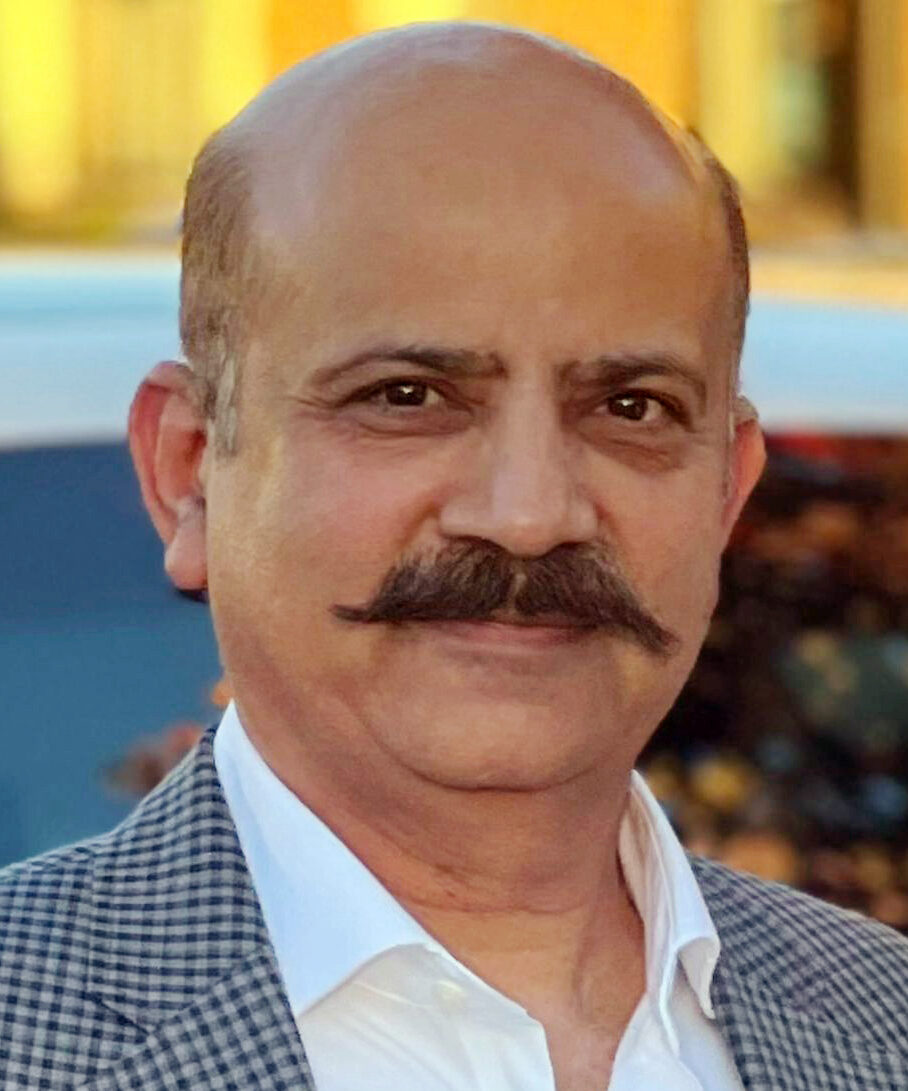11 Times Blockbusters Like “Avatar,” “The Matrix,” And “The Dark Knight” Were Directly Influenced By Lesser-Known Films That You Absolutely Need To Watch
In case you need to bulk up your to-watch list.
A great movie can do many things. Movies can push you toward a career path, they can help heal you emotionally, and sometimes, movies inspire filmmakers to make other movies. And as a certified Person Who Likes Watching Movies, that truly is the ideal outcome for me.
They say that there are no original ideas anymore, and I certainly don’t think that’s a bad thing. But you might be surprised to hear which of your favorite blockbuster hits took inspiration from movies you might not have seen. And if you haven’t encountered them yet, you have worlds waiting for you to enjoy. So, I’ve rounded up 11 times some of your favorite filmmakers cited the direct inspirations for their work. Let’s dive in, shall we?
©Warner Bros/Courtesy Everett Collection
Starting out strong with one of the most beloved action movies from the 2000s, which was inspired by possibly the best heist movie of all time, The Dark Knight director Christopher Nolan has spoken multiple times about being inspired by Michael Mann’s classic. While the movie has a ton of recognizable references, the most notable is probably the opening scene, which shows Joker running a bank robbery followed by a shootout on the street, just like in Heat. And if the similarities between the sequences weren’t enough, William Fichtner plays the mob’s banker in both movies.
©Miramax/Courtesy Everett Collection, China City & Films Co. / Media Asia Entertainment Group, Cinema City Enterprises
The precursor to Pulp Fiction, Quentin Tarantino’s diamond heist is iconic for so many scenes, a number of which were directly inspired by shots in Ringo Lam’s ’80s Hong Kong action flick. When asked about the similarities between the two films, Quentin confirmed that he had been inspired quite a bit. Remember the Mexican standoff at the end of Reservoir Dogs? You can find that scene in City on Fire as well.
The Shape of Water, 2017 / Creature from the Black Lagoon, 1954
Photo Courtesy Of Fox Searchlight Pictures / Fox Searchlight / Everett Collection, Courtesy Everett Collection
Not only was the 1954 monster movie Guillermo del Toro’s inspiration behind The Shape of Water, it was also his main motivation for making the movie in the first place — namely, due to his dissatisfaction with the ending. At 6 years old, mind you! Guillermo said that while watching Creature from the Black Lagoon, he fully expected the protagonist to end up with the creature, romantic-styles. He was so disappointed that they didn’t, that he made his own movie to heal his heart.
The Magnificent Seven, 1960 / Seven Samurai, 1954
Courtesy Everett Collection, Toho / Courtesy Everett Collection
This is my official plea for you to familiarize yourself with Akira Kurosawa if you aren’t already a Letterboxd user. If you love this classic Western, you’ll love the samurai epic it’s based on. John Sturges’s The Magnificent Seven is a full remake of the Japanese original, changing the setting and swapping samurai for gunslingers, but the two movies share the same fighting spirit.
Midsommar, 2019 / The Wicker Man, 1973
© A24 / courtesy Everett Collection, British Lion Films
Director Ari Aster spoke about the influence that the 1973 folk horror classic had on his follow-up to Hereditary, but it might not be in the way you expect. While the two films share similar premises (outsiders encountering a sacrificial pagan/folk festival), Ari said that Midsommar leads the viewer to expect The Wicker Man’s ending, but ultimately the film goes in a different direction. Watch both, and you’ll totally know what he’s talking about.
The Favourite, 2018 / Amadeus, 1984
Yorgos Lanthimos / Fox Searchlight / Everett Collection, ©Warner Bros/Courtesy Everett Collection
While Yorgos Lanthimos cited multiple movies when speaking about the inspiration behind The Favourite, one is the 1984 film Amadeus, which follows the life of Mozart through the perspective of his rival, Salieri. Yorgos said that as a regency period film, it was “inspiring for trying to do something different with the genre.” And if you’ve seen both, you’ll notice the similarity between the grandeur and emotional theatrics.
The Matrix, 1999 / Ghost in the Shell, 1995
©Warner Bros./Courtesy Everett Collection, Production I.G / Bandai Visual / Manga Entertainment
While Mamoru Oshii’s Ghost in the Shell has inspired a ton of stuff in Hollywood, one of the most notable is definitely The Matrix. The Wachowski sisters, who directed the film, reportedly approached producer Joel Silver with a copy of Ghost in the Shell and said, “We want to do this for real.” The similarities can be seen in some of The Matrix’s most iconic sequences, such as the green text, which appears in the opening for Ghost in the Shell.
Luca, 2021 / Porco Rosso, 1992
Disney / Courtesy Everett Collection, Studio Ghibli
While Luca’s director, Enrico Casarosa, has cited multiple Studio Ghibli films as influences for his adorable sea-monster tale, viewers might spot that the town in the movie, Portorosso, is a direct play on words from the Ghibli film Porco Rosso, which is also set in Italy. While the two movies definitely differ in narrative styles, they share themes about nature, and both feature non-human protagonists interacting with their human counterparts.
The Hateful Eight, 2015 / The Thing, 1982
©Weinstein Company/Courtesy Everett Collection, ©Universal/Courtesy Everett Collection
John Carpenter’s The Thing was reportedly required viewing on the set of Quentin Tarantino’s The Hateful Eight, and if that doesn’t scream homage, I don’t know what does. Quentin described the similarities between the two movies and highlighted that they were both “studies of paranoia” and described the feeling of paranoia in The Thing as “so thick and so bottled up in that shelter that it bounced on the walls until it had nowhere else to go but through the fourth wall and into the audience,” which was what he aimed to replicate.
Chicken Run, 2000 / The Great Escape, 1963
©DreamWorks/Courtesy Everett Collection, Courtesy Everett Collection
Boy oh boy, was I scared of this movie as a kid. This and Flushed Away. Regardless, this Aardman feature is a tongue-in-cheek parody of the classic war movie, The Great Escape. If you have the guts to rewatch it as an adult, you’ll notice the similarities — the American newcomer who helps a bunch of Brits escape being the overarching theme. The wildest part is that the chicken coop is, well, Auschwitz. Which isn’t really a sentence you expect to write.
Avatar, 2009 / Princess Mononoke, 1997
©20thCentFox/Courtesy Everett Collection, Studio Ghibli
If you love James Cameron’s Avatar and you haven’t ever encountered Hayao Miyazaki’s Princess Mononoke, I’m about to change your life. While the two are visually completely different, they share themes of preservation of the natural world, warrior societies, and a ton more. James has cited the influence of this and another Ghibli film, saying that life on Pandora was partially inspired by Princess Mononoke and the floating islands in Castle in the Sky. Which is another one you need to watch.







